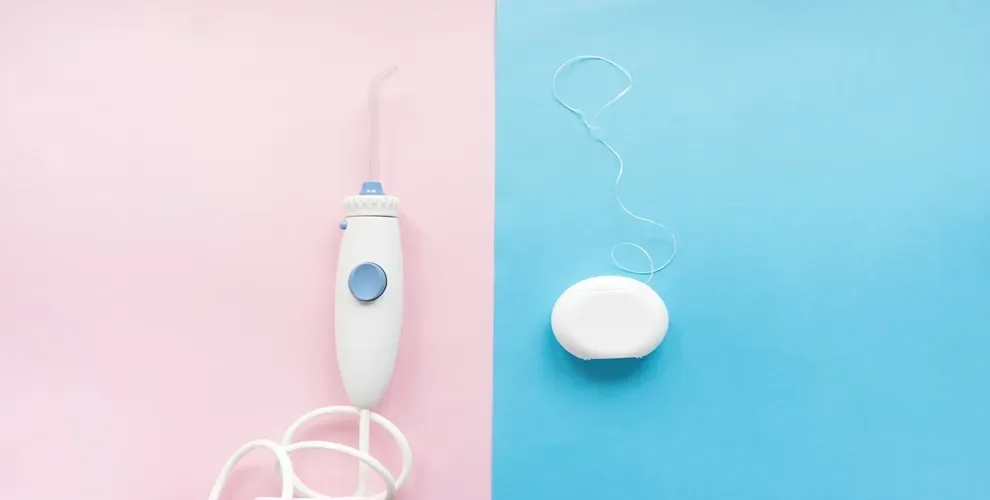Is Flossing Necessary? 4 Alternatives.

Table of Contents
- Why Does Flossing Matter?
- Alternatives to Flossing
- Keeps You Healthy
- Frequently Asked Questions
- References
You probably know that dentists recommend proper flossing at least once per day. This gets food particles out from between your teeth, which in theory lowers your risk of developing plaque or cavities.
But few people floss consistently. Some find it uncomfortable, and others just find it is easy to forget to floss. Some people think that if they get regular dental checkups and cleanings, there is no need to floss.
The American Dental Association (ADA) recommends cleaning between your teeth at least once per day, with some type of interdental cleaner. Traditionally, this means whipping out 18 inches or so of dental floss and thoroughly cleaning between your teeth, without hurting your gums.
Since few people enjoy flossing or manage to keep it in their dental hygiene routine, some companies have created new tools to clean between your teeth. These may be a good option for you if you simply hate flossing.
Why Does Flossing Matter?
The American Dental Association says floss is essential for cleaning teeth and gums. The few moments you spend each day flossing could deliver big results for your teeth.
Your toothbrush can reach visible tooth surfaces and your gumline. But floss or floss substitutes can do the following:
Pull particles trapped between your teeth
Scrape away plaque particles right below the gumline
Lower the size of bacterial colonies, reducing your risk of gum disease and tooth decay
Researchers say floss or similar tools can reduce your risk of gingivitis and plaque more than just brushing alone. While they say more studies are required to determine what is the best way to clean between your teeth, they're sure that some kind of flossing is helpful.
4 Alternatives to Flossing That Still Clean Between Your Teeth.
Dentists now recommend cleaning between your teeth with several different appliances, which may work better than just using dental floss. In fact, one dentist reported that using small interdental brushes or a toothpick worked better than flossing, unless you have very little space between your teeth.
Here are some of the options for interdental cleaning that may work better for you than flossing:
Interdental Brushes
Although medical studies are also vague about the benefits of interdental brushes, some evidence suggests that they work better than dental floss. Most people have enough space to get the smaller sizes of interdental brushes between their teeth to remove debris.
These brushes are like smaller toothbrushes. One dentist with the British Society of Dental Hygiene and Therapy stated that regular brushing gets only three to five surfaces of the teeth, and using an interdental brush removes food particles from additional surfaces that are hard to reach. Floss does not directly clean these surfaces, although it can remove some larger food particles.
Water Flosser
This device shoots a jet of high-pressure water into the areas between your teeth. It is more expensive than brushes or floss, but it may be more comfortable for people who do not have enough space between their teeth for even the smallest interdental brush.
Dentists suggest using a water flosser before brushing your teeth rather than after. This is so you do not remove fluoride in toothpaste, which is designed to strengthen your tooth enamel.
Brushing Two to Three Times Daily
People concerned about flossing, interdental brushes, or other appliances may benefit from simply brushing their teeth more often. If you brush your teeth in the morning and at night, this is a good amount, but brushing even more can help. Adding one more scrub after lunch, for example, can greatly improve your dental hygiene by removing more food particles before they get completely stuck between your teeth.
Professional Cleanings
If you already visit a dental hygienist on a regular schedule, you can ask about setting up more frequent cleanings. Some people are more genetically prone to developing tartar or calculus than others, so even thorough interdental cleanings may not be enough to slow this process.
Getting a professional to clean your teeth means you get plaque removed before it becomes a health problem. Medical studies show there is insufficient evidence to support or refute this claim, and this is the most expensive way to clean between your teeth. Even so, professional cleanings certainly remove some level of buildup.
If you are the type of person who struggles with plaque buildup, more frequent professional cleanings could be your best solution. Your dental hygienist will recommend that you pair this approach with a comprehensive oral hygiene routine.
Flossing Keeps You Healthy
Dentists are clear that the most important thing about cleaning between your teeth is that you do it regularly.
You can floss either before or after you brush your teeth. If you don’t want to floss, you can scrub between your teeth with interdental brushes, use a water flosser before brushing your teeth, or use a toothpick if you do not have access to floss or other cleaning devices.
The key takeaway is to get between your teeth and remove any food particles there. This ensures your teeth can stay as clean as possible, reducing the amount of plaque buildup.
